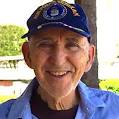The SEC’s own Inspector General(OIG) has found that between 1992 and 2008 the SEC received six substantive complaints about fraudster Bernie Madoff’s hedge fund operations yet never conducted a thorough and competent examination of them. The SEC conducted two investigations and three examinations based on credible complaints about Madoff’s operations but never verified Madoff’s trading or conducted a Ponzi scheme probe.
One complaint submitted in 2005 was titled, “The World’s Largest Hedge Fund is a Fraud” and, according to Lawrence Velvel, dean of the Massachusetts School of Law at Andover, “detailed approximately 30 red flags indicating that Madoff was operating a Ponzi scheme, a scenario the complaint described as ‘highly likely.’” Velvel is one of Madoff’s defrauded investors and has made an extensive study of the gigantic swindle.
Another complaint charged Madoff had comingled $10 billion owned by his deceased investor client Norman F. Levy with funds controlled by his firm, and that Madoff kept two sets of records, the more interesting of which “is on his computer which is always on his person.” This apparent insider information also was ultimately disregarded.
“In investigating this complaint,” Velvel says, “the Enforcement staff simply asked Madoff’s counsel about it, and accepted the response that Madoff had never managed money for this investor. This turned out to be false.” When news of Madoff’s Ponzi scheme broke, it became evident that Levy was one of Madoff’s largest individual investors.
Yet another complaint in May, 2003, this one from a respected Hedge Fund Manager, questioned whether Madoff was actually trading options in the volume he claimed and noted that Madoff’s strategy and purported returns were not duplicable by anyone else. The complaint further stated Madoff’s strategy had no correlation to the overall equity markets in over 10 years and that in aggregate his actions were “indicia of a Ponzi scheme.”
The SEC’s Office of Compliance Inspections and Examinations(OCIE) conducted two lame examinations based on the above Hedge Fund Manager’s complaint, Velvel says. Both were characterized by (1) “significant delays” in getting started despite their urgency; (2) “the teams assembled were relatively inexperienced;” (3) there was insufficient planning; (4) the probes were “too narrowly focused on the possibility of front-running” and (5) “no significant attempts were made to analyze the numerous red flags about Madoff’s trading and returns.”
“The OIG’s expert concluded that based upon issues raised in the Hedge Fund Manager’s complaint, had the examination been staffed and conducted appropriately and basic steps taken to obtain third-party verifications, Madoff’s Ponzi scheme should and would have been uncovered,” Velvel said.
In the first OCIE probe, Velvel notes, the examiners drafted a letter to the National Association of Securities Dealers(NASD) seeking independent trade data “but they never sent the letter, claiming that it would have been too time-consuming to review the data they would have obtained.”
“The OIG’s expert opined that had the letter to the NASD been sent, the data would have provided the information necessary to reveal the Ponzi scheme,” Velvel noted.
In the second OCIE probe, its Assistant Director sent a document request to a financial institution Madoff claimed he used to clear his trades. Requested was trading done by or on behalf of particular Madoff feeder funds during a specific time period. Even though the response was that there was no transaction activity in Madoff’s account for that period, the Assistant Director decided it did not merit any follow-up.
During the course of both these examinations,” Velvel says, the examiners “discovered suspicious information and evidence and caught Madoff in contradictions and inconsistencies. However, they either disregarded these concerns or simply asked Madoff about them. Even when Madoff’s answers were seemingly implausible, the SEC examiners accepted them at face value.”
The SEC also missed an opportunity to expose Madoff when in 1992 it investigated New York accounting firm Avellino & Bienes, which had been raising money from clients and turning it over to Madoff to invest. When the SEC suspected the firm of operating a Ponzi scheme it ordered the funds invested returned to the clients and never inquired where Avellino & Bienes got the funds to do so.
The SEC Inspector General’s 457-page report on the SEC’s malfeasance concerning the Madoff fraud will be the subject of Velvel’s Comcast show “Books of Our Time,” with guest Erin Arvelund, the Barron’s reporter who first wrote up the doubts about Madoff’s hedge fund operations in 2001. Her book, “Too Good to be True: The Rise and Fall of Bernie Madoff,” was published last August. Velvel’s interview program will air on Comcast at a time to be announced.
The Massachusetts School of Law at Andover is a non-profit law school purposefully dedicated to the education of students from minority, immigrant, and low-income households who would otherwise not have the opportunity to obtain a legal education. To arrange for interviews with Dean Velvel please contact Sherwood Ross at (305) 205-8281.
#
Ross Associates, 7921 SW 100th St, Miami, Florida 33156

Sherwood Ross is an award-winning reporter. He served in the U.S Air Force where he contributed to his base newspaper. He later worked for The Miami Herald and Chicago Daily News. He contributed a weekly column on working for a major wire service. He is also an editorial and book publicist. He currently resides in Florida.
ATTENTION READERS
We See The World From All Sides and Want YOU To Be Fully InformedIn fact, intentional disinformation is a disgraceful scourge in media today. So to assuage any possible errant incorrect information posted herein, we strongly encourage you to seek corroboration from other non-VT sources before forming an educated opinion.
About VT - Policies & Disclosures - Comment Policy



